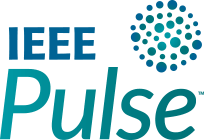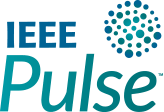As my term comes to end as president of the IEEE Engineering in Medicine and Biology Society (EMBS) (‘21, ‘22), I wish to share with you some of our exciting technical activities during my tenure, strategic planning over the next five years (2022–2027), and insights for the future beyond 2027.
Thanks to science and BME, the threat of COVID-19 to our day-to-day lives has waned. The COVID-19 pandemic has highlighted the importance of BME in several ways. Biomedical engineers have played a crucial role in the development and production of medical equipment and supplies needed to combat the virus, such as ventilators, personal protective equipment (PPE), and diagnostic tests. They have also been involved in the design and testing of COVID-19 treatments and vaccines. In addition, BME has been used in the development of telemedicine and remote monitoring technologies, which have helped to reduce the spread of the virus and keep patients safe.
I am proud to have served as president during this unprecedented time and to have continued our mission of providing a vibrant and global ecosystem to exchange ideas, disseminate our research results, and exchange data and protocols with the participation and collaboration of engineers, scientists, physicians, health care professionals, and industry leaders.
I am gratified for the opportunity I have had to lead in the society’s transformative and purposeful shift in focus to the translation of health care innovations to improve the quality and access to health care globally. It is within this context and especially during these past two years that our conferences and technical activities were organized with the clinicians, academics, researchers, and innovators in mind. And despite a global pandemic, EMBS maintained a commitment to bringing valuable in person and virtual activities to our students, young professionals, and junior faculty.
EMBS has much to be proud of as I conclude my term with more than 10,000 members residing in nearly 100 countries around the world. Together with you we have reached new audiences and made landmark, free of charge public forums, and myriad special topic conferences more available than ever before. It is through these vehicles that we have increased dialog and public awareness about the importance and use of health care, engineering, medicine, and biology innovations to predict, prevent, and combat any public health crises and the pandemic and to design better and more effective health care delivery systems for the well-being of all human beings globally.
These impactful and far-reaching events included the first and most comprehensive Public Forum on COVID-19, which helped bring the BME community together to innovate on screening, tracing, and treatment of COVID-19. At the time this platform provided one of the most comprehensive exchanges of ideas, data, and reports regarding COVID-19.
Another important milestone was the new Public Forum on Healthcare Industry Trends: Care, Innovations, and Entrepreneurship with the participation of global scholars and leaders from the health care industry, research institutions, and academia. With the participation of 1,000 attendees and 28 industry leaders in the areas of medical devices, biopharma, medical imaging, biotechnology, life sciences, and neurotechnology this event was likely the first and most comprehensive gathering of health care leaders at any BME conference to date. This forum provided a valuable resource for students and postdocs looking to pursue careers in health care, as it provided information on global opportunities and allowed them to network with industry leaders and peers and to gain career advice and guidance.
In yet another milestone, EMBS held the first-ever Public Forum on Data Science and Engineering in Healthcare, Medicine and Biology dedicated to research and translational advances and challenges in health care-focused data science in Tel Aviv which brought together scientists, engineers, and students to focus on translational data science and engineering research and health care innovations (Figure 1). The roster of speakers included more than a dozen CEOs and vice presidents of health care companies and importantly, 30% of the 28 esteemed speakers were women in engineering (WIE).
Building and nurturing a culture and community of diversity and inclusiveness is a personal and critical mission for me. I recruited board members and students to the society who are representative across genders, geographies, and levels of experience and ensured adequate resources were dedicated to our International Summer Schools. Summer schools such as The International Summer School on Data Science, Engineering in Healthcare, Medicine, and Biology, the NSF, cosponsored by IEEE Brain and the University of Houston, and the Technical University of Crete as the Summer School on Data Science and Engineering in Healthcare, Medicine, and Biology impassioned a new generation of BME students (Figure 2). To date, EMBS summer school has trained more than 550 students since 2001. More than half of these have been females who currently hold faculty positions in respected universities and leadership roles in the health care industry.
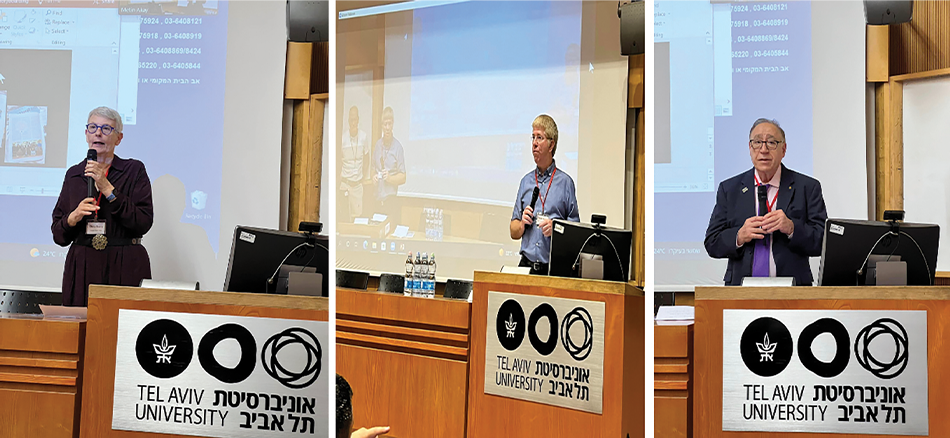
Figure 1. IEEE EMBS-Tel Aviv University Public Forum on Data Science and Engineering in Healthcare, Medicine and Biology Opening Ceremony: (left) Dr. Orna Berry, GoogleCloud, Israel; (center) Dr. Noam Eliaz, Dean, Faculty of Engineering, Tel-Aviv University; and (right) Dr. Metin Akay, IEEE EMBS President. (Photo courtesy of Dr. Metin Akay.)
The creation of regional conferences, yet another of my passions, has increased the footprint of EMBS globally and fostered the development of valuable and sustainable relationships with local organizing institutions, chapters, and members worldwide. The first regional conference, organized by the IEEE Engineering in Medicine and Biology and the University Pécs Conference on Biomedical Engineering and Innovations, was held in Pécs, Hungary. Highlights of the conference included the participation of medical students and the health care industry, a hackathon competition, and several groundbreaking workshops (Figure 3).
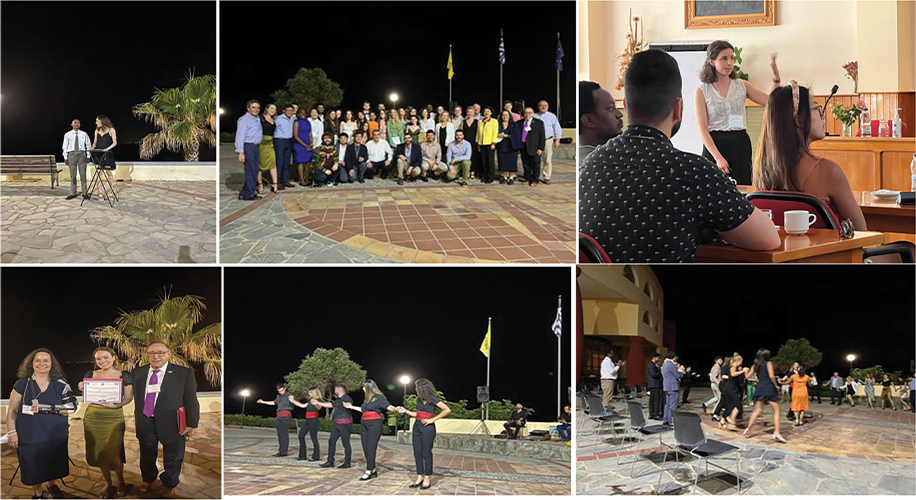
Figure 2. NSF-IEEE EMBS Summer School on Data Science in Healthcare, Medicine and Biology 2022, Crete, Greece. (Photo courtesy of Dr. Metin Akay.)
Our publications flourished during my tenure. Together with you, our authors, editors, and reviewers, we have set numerous new milestones. We have evolved along with the open science movement and launched the IEEE Open Journal of the Engineering in Medicine and Biology (OJEMB) and are looking forward to receiving our first impact factor next year. I am also particularly proud that IEEE Transactions on Biomedical and Health Informatics (JBHI) has during this time become the leading journal in biomedical informatics with an impact factor of >7.0.
New initiatives 2023 and beyond
I have set the stage for EMBS to continue on a trajectory of continued growth and success. The next Public Forum on Healthcare Innovations in Clinical Practice will be held in April 2023 with the participation of several world-renowned clinicians who will present symposiums focusing on how health care innovations can be used in the clinic to improve health and wellness; prevent, treat, and manage chronic, infectious diseases; and improve health outcomes. The symposium will also advance the concept of engineering principles and technologies in the practice of medicine, elevating the concept of advanced technology to conduct research in areas where medicine and engineering intersect.
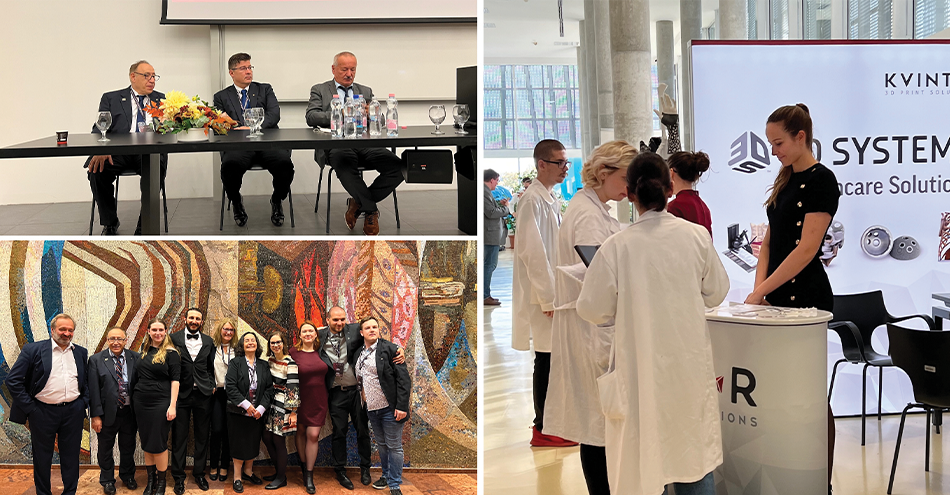
Figure 3. IEEE EMBS-Pécs University Regional Conference on iCBE Opening Ceremony: (top left) Prof. Dr. Attila Miseta, the rector of University of Pécs, Prof. Dr. Miklos Nyitrai, the Dean of University of Pécs Medical School, and Dr. Metin Akay, President; (bottom left) the conference organizing committee members and speakers; and (right) the exhibition area. (Photo courtesy of Dr. Metin Akay.)
Data science has the power to move the needle on critical issues in health care and medicine, as well as shedding light on the biological basis of health and disease. State-of-the-art data science algorithms and techniques being developed and engineered across multiple communities can be leveraged to transform the health care sector, with the potential to improve quality of care to reduce cost of services provided to patients. To highlight the research and translational advances and challenges in health care-focused data science, we have proposed the inaugural IEEE EMBS Special Topic Conference on Data Science and Engineering in Healthcare, Biology and Medicine to be held later this year in Malta. The conference will provide a critical platform for scientists, engineers, and students to focus on translational data science and engineering research and health care innovations.
In the near future we will launch a new Public Forum on Global Healthcare Innovations in the Sub-Saharan countries including Botswana and Kenya. The aim of these forums is to highlight and discuss current and emerging health care opportunities and challenges and identify new directions in the fields of global health care including biotechnology and life sciences for diagnostics; telemedicine, digital health, and informatics for health monitoring; low-cost wearable medical devices in low-resource settings; and next generation global health care education, leaders, and practitioners.
In 2025 our annual conference will be held in Copenhagen, Denmark, marking the first time EMBS will hold a conference in a Nordic/Baltic Country. This location reflects our purposeful strategy of locating technical activities in geographic regions that are potential growth areas for EMBS, specifically in areas with synergy and demonstrated partnership between health care industry, clinical institutes, and institutions of higher education.
Some insights beyond 2027
However, it is no secret that challenges and opportunities lie ahead. Access to health care, health care disparity and equitability and climate change remain the challenge of our generation. Digital health will continue transforming medical research, diagnostics, and therapeutics and improve efficiency of health care delivery and patient outcomes while lowering costs. Self-care will be empowered for patients improving access, efficiency, and convenience.
As a method to advance and improve patient care and research, medicine will embrace the concept of a digital twin as virtual representation of a patient in the clinical or research setting. However, there will be challenges including interoperability, data and cyber security, and privacy prior to widespread adoption.
We also need to prepare our health care systems and infrastructure for any interruption by climate changes by designing and implementing better strategies to make the health care systems and delivery more resilient and fight against any infections and mental diseases and health disparities which can be caused by climate changes. Finally, training of health care employees is very crucial to deliver services without any major interruptions due to climate change.
Health care innovations will also transform space medicine and help assess the wellbeing of astronauts and space explorers on the earth and in space to perform their duties without any interruptions. New and novel engineering approaches including more portable, wearable, and compact devices, apps, and maybe an artificial intelligence (AI)-based medical advisor are needed to help astronauts during their mission in space.
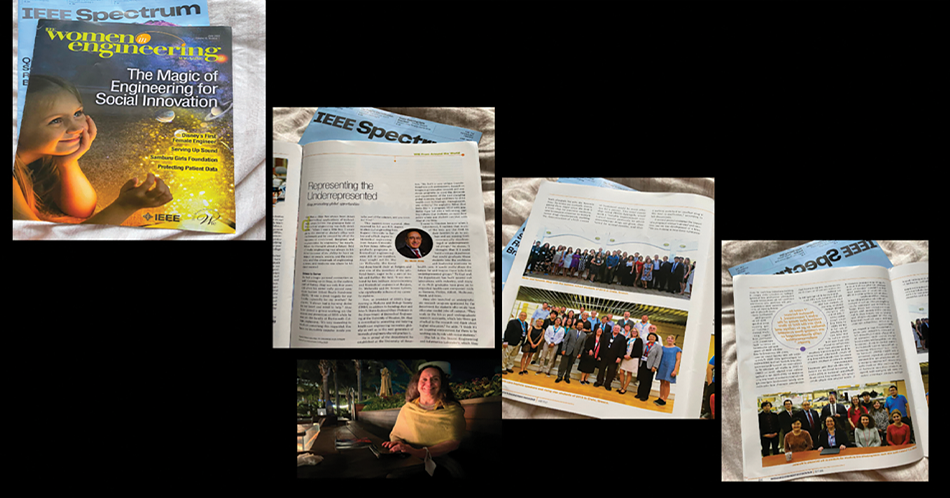
Figure 4. Representing the unrepresented, IEEE Women in Engineering Magazine. (Photo courtesy of Dr. Metin Akay.)
EMBS will focus technical activities on these emerging areas in the next decades including: genome engineering and biomanufacturing; digital health transformation, connected for digital care, space medicine, resilient health care systems, and delivery. These technical activities should be locally organized at different geographical locations and attended by our members both locally and globally using advanced internet platforms. This will serve to strengthen our collective capability to interact and exchange ideas as well as share, access, and manage data, models, and the latest reports on global health care research.
We should also continue representing the unrepresented globally. The promotion of the unrepresented, women, and diversity and inclusion is indeed an important moral and ethical responsibility (Figure 4).
In this context I look forward to EMBS blazing a trail to our Centennial Anniversary in 2053. I am confident we will continue to make strides in improving how we serve our community. We renew our commitment and set our future focus on the pursuit of new frontiers in accessible, affordable, and efficient health care in this world and the world beyond (innovations in space medicine).
I am pleased to inform you that Paul Sajda has been serving as our new president since January 1, 2023. I have worked with Paul on several scientific committees and the organization of several symposiums and conferences over years and am always highly impressed with his vision, dedication, and integrity. I do know he will be an exceptional president to lead us and we all look forward to working with him.
With that, I would like to note my appreciation of your amazing scientific contributions and exceptional services to increase public awareness about health care innovations and promote the field of health and BME. Your commitment to open science and BME is saving lives and is a big part of the reason there is a lot to be hopeful for the future as I conclude my term as IEEE EMBS President. I also hope we will celebrate our centennial anniversary together in 2053. <
Metin Akay is the chief ambassador and past president of the IEEE Engineering in Medicine and Biology Society (EMBS) and the founding chair and John S. Dunn endowed chair with the Department of Biomedical Engineering, University of Houston, Houston, TX, USA.
